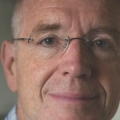You have no items in your cart. Want to get some nice things?
Go shopping
Borders. I’ve always been drawn to borders, to the horizon, to the place just out of sight. I want to know the next valley, the next country, the next moment. I reach for it, and if it’s beyond my grasp, if it’s a place lost in time or yet to come, then I imagine it.
Time was that travel books and stories were all about physical travelling. Travel writers embarked on valiant quests full of derring-do, paddling to the source of the Limpopo in search of original knowledge. Then the world shrunk. Day-trippers trampled the wilderness, pausing to picnic in Newby’s Hindu Kush. Bruce Chatwin’s isolated Patagonia became a holiday home for the Benettons. According to the Financial Times, 20% of ‘wilderness’ travellers check their e-mail during a week away. So with the foreign now familiar, how does the modern travel writer return home with anything more original than an unusual intestinal parasite?
By crossing borders, as ever. But today it is no longer enough to travel across a country, rather one must travel into it. Into its society and soul. The travel writer becomes less a geographer of place, more of the human heart. The ‘original knowledge’ that he or she brings home is a collection of subjective impressions. “Travel writing,” writes Colin Thubron, “is one culture reporting on another. Its history, more than most, betrays that objectivity is a chimera.” He adds that uniquely in literature, outside autobiography, the travel writer acknowledges his subjectivity.
For me, a journey always begins with a feeling, a memory, a quest or an obsession. I pair emotion with curiosity, the inner world with the outer world. I feel myself into another place, another time, another life. My objective is to understand a society and to empathise with its people, to make a country and its history accessible. To do this I’ve learned to trust strangers, to watch the sky, to follow my nose and to make a lot of notes. Above all I’ve learned to listen to myself.
But as essential as are research trips — in my case building an aeroplane over a Cretan summer, retracing the hippie trail or living in Berlin for five years – the travel writer’s real travelling is done at his or her desk, in the intense distillation of the journey. It is back at home that he or she draws together experience and memory in an instinctive need to infuse the moment with meaning and value. This is how I see the world. This is how I understand the condition of being human. So it is that the reader can step over a border and draw together – on the page at least – our divided worlds.
Rory MacLean’s new book Berlin: Imagine a City is published in the UK by Weidenfeld & Nicolson and by St Martins Press in the US. You can read our review of Berlin: Imagine a City here.

About Rory MacLean
Rory MacLean is one of Britain's most innovative travel writers. His ten books, including UK best sellers Stalin's Nose and Under the Dragon, and now Berlin: Imagine a City, have challenged and invigorated the genre, and – according to the late John Fowles – are among works that "marvellously explain why literature still lives". He has won awards from the Arts Council of England and the Canada Council as well as a Winston Churchill Travelling Fellowship, and was nominated for the International IMPAC Dublin Literary prize. He has written and presented over 50 BBC radio programmes and worked on movies with Marlene Dietrich and David Bowie. A Fellow of the Royal Society of Literature, he divides his time between Berlin, Dorset and London where he is writer-in-residence at the Archive of Modern Conflict.



